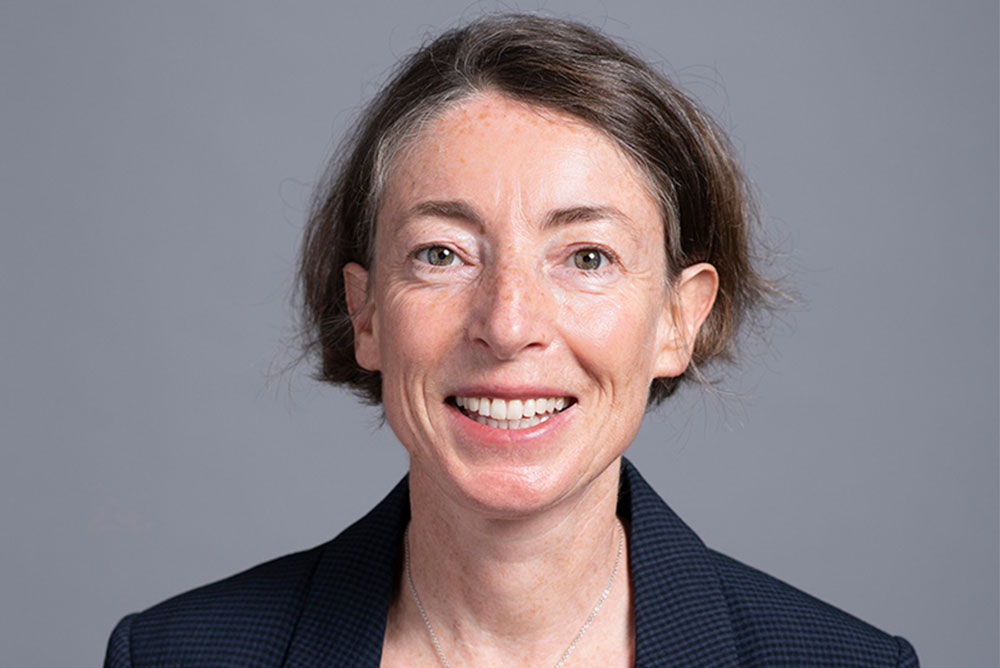
Courtesy of Emma Sky.
Emma Sky, OBE, is a British expert on conflict, reconciliation, and stability, who has worked mainly in the Middle East. The founding director of the International Leadership Center at the Yale Jackson Institute for Global Affairs, which oversees the Maurice R. Greenberg World Fellows Program, from 2007 to 2010, she served in Iraq as the political adviser to U.S. Army General Ray Odierno, and as the governorate coordinator of Kirkuk for the Coalition Provisional Authority from 2003 to 2004. Before interviewing her former colleague Steve Miska about what the U.S. owes our Middle Eastern allies, she talked granola and Magnum ice cream, peace studies and grand strategy in the Zócalo green room.
What do you eat for breakfast?
I’m looking at my shelf: granola.
As a kid, what did you want to be when you grew up?
My earliest memory was wanting to help end wars. I was really passionate about what can bring peace in the world.
What’s the best advice you’ve ever been given about compromise and reconciliation?
I remember taking a workshop with a professor of peace studies, Johan Galtung, and everything was about trying to find the optimistic future. So if you look at a point going forward, rather than back, and going over and over the grievances and the injustices, and you think, “What is an outcome that both sides can live with, that both sides can be reasonably unhappy with?” It’s the peace framework versus the justice framework. But if you work under the assumption that most human beings are basically decent—they’re struggling, wanting to do the right thing—trying to see the best in each other rather than the worst—you see the common humanity, understand their position, where they’re coming from, and then try to find some common ground there.
Do you have any guilty pleasures?
Magnum ice cream. And they’ve got a vegan one, which somehow makes me feel like it’s less bad than the other ones.
If you had one more hour in the day, what would you do with it?
I’d have no excuse not to exercise, I suppose. I’d go for another walk. I like walking a lot.
What surprised you most in your work with U.S. troops?
Coming across people like Steve Miska. I can’t say that he’s the norm because he’s not, but I was very pleasantly surprised to come across some really decent and idealistic people in the military. It’s quite strange, if you’re not American, that idealistic people join the military to make the world a better place. You don’t associate militaries with that kind of thing in other countries. You think you’d go to the Peace Corps, join an NGO, be a diplomat. I was surprised by how people in uniform saw the military and thought of its role in the world, and they didn’t see any contradiction in bringing peace down the barrel of a gun.
What’s the last thing that inspired you?
I get inspired a lot by Yale World Fellows. Last semester we had a couple of really inspiring guys. One is Hyppo [artist and activist Hyppolite Ntigurirwa], who is a child survivor of the Rwandan genocide. He dedicates his whole life to peace—how empowering it is to be the one who decides to give peace even though you’ve been wronged, even though these terrible things have happened to you.
What are you reading right now?
A colleague of mine, Charlie Hill, died recently; he was an extraordinary guy. He’s famous for teaching grand strategy, and he has a book that came out 10 years ago called Grand Strategies, and I’m reading it now. I can hear his voice when I’m reading it, and he’s very eclectic. He’s not somebody you could put in any discipline. So you’re reading about the Iliad or the Odyssey, but then he links it to modern literature. And he looks at how, through books, you can see different views of how the world should be. You’ve got the realists who just use hard power to kill people versus the idealists, who try to build utopias. And he connects all the dots in ways I’ve never seen anyone else do.



